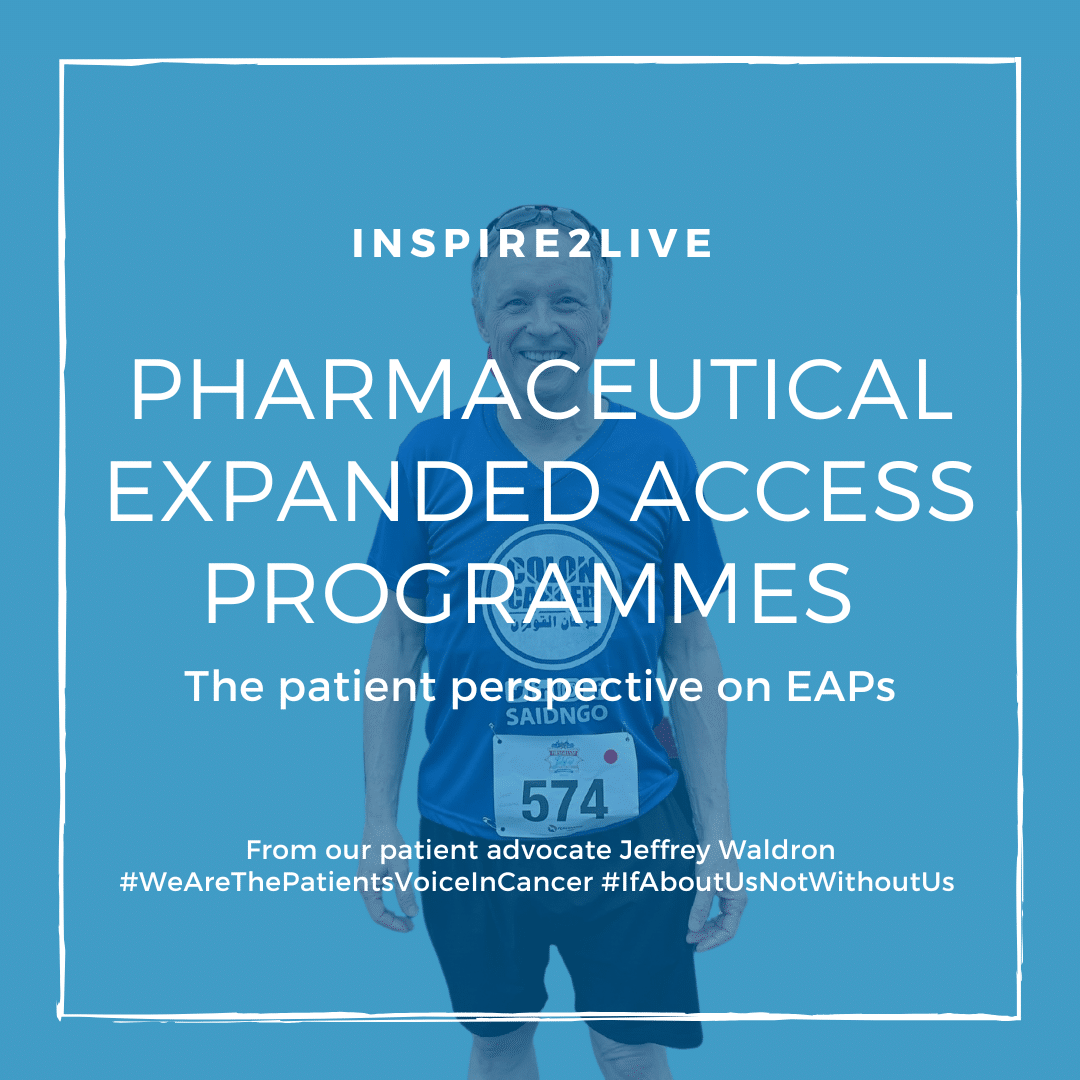The patient perspective on pharmaceutical expanded access programmes (EAPs)
Introduction
Pharmaceutical expanded access programmes (EAPs), also referred to as “compassionate use” programmes, are designed to provide later-stage patients with access to new investigational medications prior to regulatory approval. Traditionally, these new drugs proceed through three stages of clinical trials to establish safety, efficacy and proper dosing. These trials typically enroll patients with early-stage disease who have not undergone extensive previous therapies and who do not have significant comorbidities. The reason for this approach is that pharma’s main goal is to ensure regulatory approval of the new drug in as a timely way as possible. However, regulators, pharma and providers have long recognised that there can be patients who don’t meet the criteria for clinical trial enrollment, but who have already exhausted standard-of-care treatment options for the disease being targeted by the new drug. That is particularly important in diseases for which there are no current therapies.
Stage setting
The pace of innovation in the global healthcare industry is enabling the rapid development of new therapies and treatments for patients who previously had fewer options. It is being driven by the convergence of three powerful disciplines: advanced diagnostics, evolving artificial intelligence and investigational new drugs (INDs). The combination is altering standard-of-care, initially in developed countries, and it will migrate to developing and undeveloped ones.
- Advanced diagnostics – New diagnostics technologies such as next-generation sequencing (NGS), liquid biopsy techniques e.g. ctDNA and digital health measures are being increasingly used to better diagnose and stratify patients more precisely. These assays and other measures more closely guide therapy decision support processes.
- AI-driven therapy decision support – Building on the incorporation of advanced diagnostics indicators along with patient symptoms, family history, etc., AI tools are increasingly being applied to model patients’ unique conditions to guide therapy decision support.
- New investigational drugs – The incorporation of these two clinical technologies are especially critical for guiding advanced, newer interventions and the increased application of combination therapies to treat diseases. The pace of new drug R&D has been rapidly accelerating and the lightning timeline for developing COVID-19 vaccines has demonstrated the changing dynamics of the pharma industry.
EAP access process
Along with their physician, individual patients drive EAP access to investigational medications. The process for submitting an EAP request in the U.S. is that the physician must articulate and demonstrate two criteria. First, they must submit a request to the Food and Drug Administration (FDA) demonstrating that the patient has exhausted all standard-of-care treatment options for their disease, which is why EAPS were originally named “compassionate use” programmes. Next, the physician has to apply to the pharma firm that is developing the investigational new drug to explain why they believe the patient may be a strong candidate to receive the new drug before regulatory approval. This could entail incorporating advanced diagnostics information with AI therapy decision support tools to support the recommendation that the patient be provided access to the new therapy. If approved by the FDA and pharma firm, the medication is typically provided free of charge, at least until commercial approval. EAP access in other countries follows similar opportunistic approaches to support individual patients.
Global availability of expanded access programmes
Currently, while EAPS are available in a wide range of countries, there is a significant disparity between developed countries’ utilisation versus that of developing or undeveloped countries. The Journal of the American Medical Association (JAMA) conducted a three-year EAP study from January 2018 to December 2020 utilising global data from Novartis for all of their EAP requests. During that 36-month observation period, 31,711 EAP requests were received from 110 countries; significantly, 23,194 (73%) came from only 10 developed countries. All developed countries combined accounted for 27,612 (87%) of all requests; while developing and undeveloped countries contributed only 1,021 (3%). Factors influencing the volume of EAP requests include whether a country’s EAP regulations were made publicly available and whether the country was actively conducting clinical trials. Given that EAP investigational medications were generally free for the patient, at least prior to commercialisation, it would seem that if education and communication programmes about EAPs could be emphasised in less developed parts of the world, affordability of medications would not be an impediment.
Conclusion
Pharma expanded access programmes offer a tremendous benefit to patients with advanced disease that have few, if any, remaining treatment options. Pharma R&D groups develop investigational new drugs because their data and analysis indicate that there is a target patient population that could justify this investment in the costly process of bringing a new drug to market. That effectively provides an indicator that patients with a given disease may need to be treated with newer, more effective therapies, especially if they have exhausted standard-of-care options.
Unfortunately, while there are large, organised processes, mainly driven by contract research organisations (CROs), for administering pharma clinical trials, EAP programmes completely lack the same degree of coordination and facilitation. It is basically an individual patient and physician applying for special consideration by the FDA (or individual country regulator) and pharma firms. As random that process may be, EAPs offer life-extending options for patients with no other therapies to try and at no cost for access to the drug (pre-commercialisation). Clearly, these programmes need better focus and attention, but in the meantime, we can all encourage patients we know and support to take advantage of new investigational medications.
Jeffrey Waldron
Patient Advocate Inspire2Live

